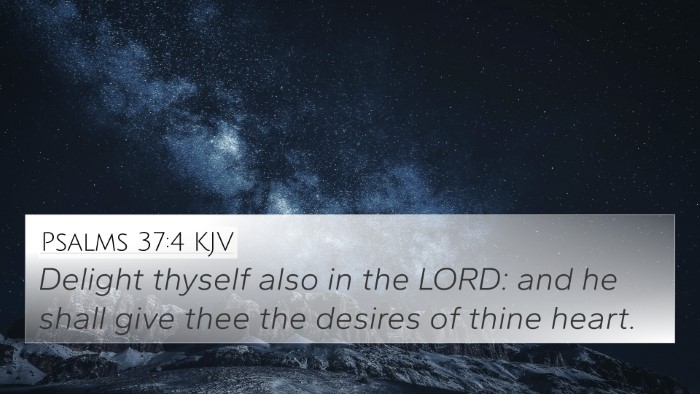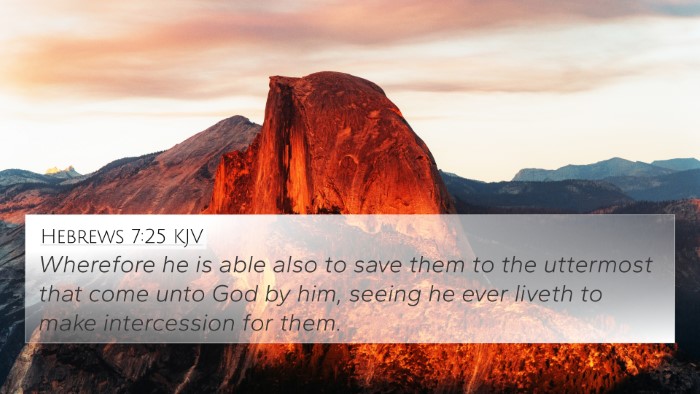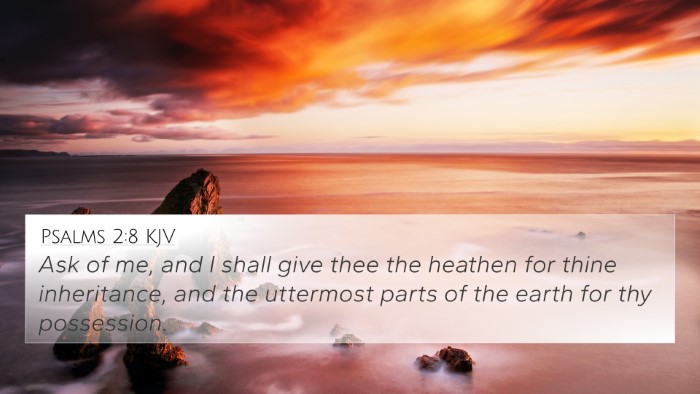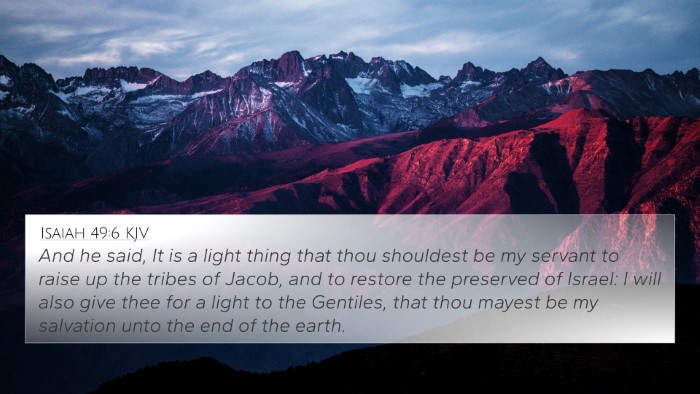Psalms 21:2 - Meaning and Interpretation
Psalms 21:2 states, "Thou hast given him his heart's desire, and hast not withholden the request of his lips." This verse carries significant implications regarding divine favor and fulfillment of righteous desires.
The verse can be understood on several levels, with notable insights drawn from public domain commentaries including those by Matthew Henry, Albert Barnes, and Adam Clarke.
Commentary Insights
-
Matthew Henry's Commentary:
Henry emphasizes that this verse illustrates God's responsiveness to the prayers of the king. This directly reveals the connection between the leader’s desires and God's providence. The verse showcases the fulfillment of his heart's desires as signs of divine support, leading to victory and triumph.
-
Albert Barnes' Notes:
Barnes highlights the significance of God granting the desires of the king’s heart as an indication of righteousness. He notes that when God fulfills such desires, it often relates to the greater good of the kingdom and reinforces the king’s role as a divinely appointed leader.
-
Adam Clarke's Commentary:
Clarke elaborates on the idea that desires aligned with God’s will can work powerfully in a believer's life. He interprets the phrase "not withholden the request of his lips" as a reflection of God's willingness to grant what is good and righteous, signifying a deep relationship between the believer and God.
Understanding the Verse
This verse speaks to several thematic principles:
- Divine Favor: It emphasizes how God grants blessings to those who align their desires with His will.
- Prayer and Communication: The “request of his lips” suggests the importance of prayerful requests made to God.
- Heart's Desire: The phrase reflects the deeply personal aspect of one's aspirations and how they relate to divine providence.
Bible Verse Cross-References
To understand the connections between Bible verses, here are several cross-references that relate to Psalms 21:2:
- Psalm 37:4: "Delight thyself also in the Lord; and he shall give thee the desires of thine heart." - This verse reinforces the principle that delighting in God leads to the fulfillment of desires.
- 1 John 5:14: "And this is the confidence that we have in him, that, if we ask any thing according to his will, he heareth us." - This verse connects confidence in prayer to the alignment with God's will.
- Proverbs 10:24: "The fear of the wicked, it shall come upon him: but the desire of the righteous shall be granted." - This reflects the ultimate grant of desires for the righteous.
- James 4:3: "Ye ask, and receive not, because ye ask amiss, that ye may consume it upon your lusts." - A reminder that desires must be pure and aligned with God's purpose.
- Matthew 7:7: "Ask, and it shall be given you; seek, and ye shall find; knock, and it shall be opened unto you." - This verse assures of God’s readiness to respond to sincere requests.
- Philippians 4:19: "But my God shall supply all your need according to his riches in glory by Christ Jesus." - A promise that supports God’s provision in response to needs.
- Psalms 145:19: "He will fulfill the desire of them that fear him: he also will hear their cry, and will save them." - This affirms God’s attentiveness to the desires of those who honor Him.
Comparative Bible Verse Analysis
In linking Bible scriptures, the significance of Psalms 21:2 can be explored through comparative analysis with related verses. As these connections are made, we see patterns of God’s promises related to prayer, desire, and divine alignment:
- Exploring how Psalms 37:4 interconnects with the fulfillment aspects in Psalms 21:2.
- Analyzing James 4:3 and its implications on the requests made in prayer.
- Considering Matthew 7:7 for encouragement in seeking desires from God.
Conclusion
In summary, Psalms 21:2 serves as a reminder of God's willingness to grant the desires of our hearts when aligned with His will, highlighting His active role in the lives of those who seek Him. Through understanding this verse and its connections to other scriptures, believers can deepen their relationship with God and cultivate the kind of desires that reflect His glory.
For those engaged in cross-referencing Bible study methods, this verse serves as an excellent starting point for identifying deeper theological themes and connections throughout scripture.








